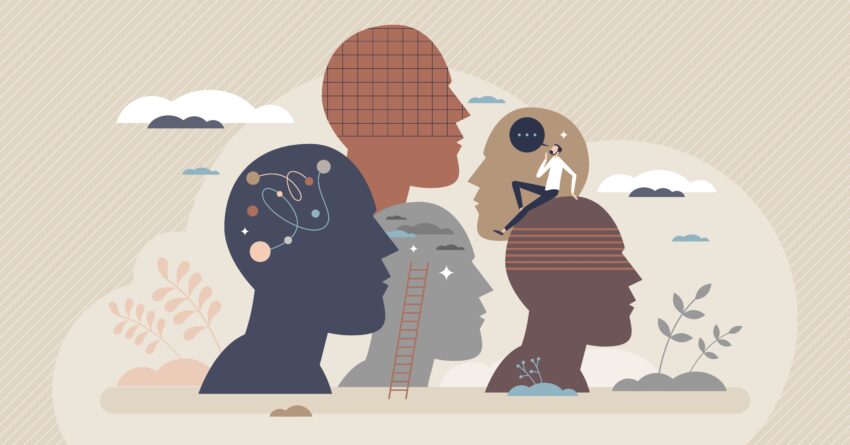Cultivating Emotional Resilience: A Holistic Approach to Well-Being
March 11, 2024

In today’s fast-paced and often stressful world, cultivating emotional resilience has become more important than ever. Emotional resilience is the ability to adapt to and bounce back from difficult situations, setbacks, and stressors. It is a crucial skill that can help us navigate life’s challenges, build strong relationships, and maintain our mental health and well-being. While there are many strategies and techniques to enhance emotional resilience, taking a holistic approach that addresses emotional, biological, and social factors can lead to more comprehensive and long-lasting results. In this blog post, we will explore the importance of emotional resilience and delve into therapeutic techniques that promote holistic well-being.
Understanding Emotional Resilience
Emotional resilience is not about avoiding stress or never feeling overwhelmed; it is about how well we can cope with stress, adversity, and setbacks. Resilient individuals have the ability to bounce back from difficult situations, maintain a positive outlook, and practice self-care even in challenging times. Cultivating emotional resilience is a process that involves developing self-awareness, emotional regulation, coping skills, and a support network. By building these qualities, we can better manage stress, anxiety, and other negative emotions, leading to improved mental and emotional well-being.
Addressing Emotional Factors
One of the key components of building emotional resilience is addressing emotional factors that contribute to stress and overwhelm. Therapy and counseling are powerful tools that can help individuals explore and process their emotions, gain insight into their thoughts and behaviors, and learn effective coping strategies. Mindfulness Based Cognitive-behavioral therapy (MBCBT) is a popular therapeutic approach that focuses on changing negative thought patterns and behaviors that contribute to emotional distress. By working with a therapist, individuals can develop healthier coping mechanisms, enhance self-awareness, and build emotional resilience.
Incorporating Biological Interventions
In addition to addressing emotional factors, it is essential to consider biological interventions that can support emotional resilience. Physical exercise, proper nutrition, sleep, and relaxation techniques play a crucial role in managing stress, improving mood, and enhancing overall well-being. Exercise, in particular, has been shown to reduce anxiety and depression, boost mood, and improve overall resilience. Engaging in regular physical activity releases endorphins, which are known as “feel-good” neurotransmitters that promote a sense of well-being. By incorporating these biological interventions into our daily routine, we can strengthen our bodies and minds, leading to improved emotional resilience.
Embracing Social Connections
Social support is another vital aspect of cultivating emotional resilience. Building strong and supportive relationships with friends, family, and community members can provide a sense of belonging, connection, and comfort during challenging times. Social support acts as a buffer against stress and can help individuals cope with adversity more effectively. Participating in social activities, joining support groups, volunteering, and seeking help from loved ones are all ways to nurture social connections and strengthen your support network. By embracing social connections, we can enhance our emotional resilience and feel more grounded and supported in times of need.
Practicing Mindfulness and Self-Care
Mindfulness and self-care practices are powerful tools that can help individuals cultivate emotional resilience and enhance overall well-being. Mindfulness involves being present in the moment, observing and accepting our thoughts and emotions without judgment. Practicing mindfulness can help reduce stress, increase self-awareness, and improve emotional regulation. Self-care, on the other hand, involves taking care of our physical, emotional, and mental needs in a nurturing and compassionate way. Engaging in activities that bring us joy, relaxation, and fulfillment can help us recharge, refuel, and build emotional resilience.
Integrating Holistic Therapeutic Approaches
To cultivate emotional resilience, it is crucial to integrate holistic therapeutic approaches that address emotional, biological, and social factors comprehensively. Holistic therapies such as yoga, meditation, aromatherapy, art therapy, and acupuncture can provide a multidimensional approach to well-being. These therapies focus on healing the whole person – mind, body, and spirit – and can help individuals achieve balance, harmony, and resilience in their lives. By incorporating holistic therapeutic approaches into our wellness routine, we can promote emotional resilience, enhance our overall well-being, and thrive in the face of life’s challenges.
Contact Us Today
Here at Steady NYC, we understand the significance of addressing emotional, biological, and social factors to build lasting resilience. If you’re seeking a supportive space to explore and enhance your emotional resilience, reach out to us today.
Our experienced therapists offer a range of therapeutic techniques, including Mindfulness Based Cognitive-behavioral therapy (MBCBT), to address emotional factors and foster positive coping mechanisms. We also emphasize the importance of biological interventions such as exercise and nutrition, as well as the value of social connections in your resilience journey. By integrating holistic approaches like mindfulness, self-care practices, and various therapeutic modalities, we aim to guide you towards a more resilient, balanced, and fulfilling life. Take the first step in your well-being journey – connect with us today and empower yourself to thrive in the face of life’s challenges.



